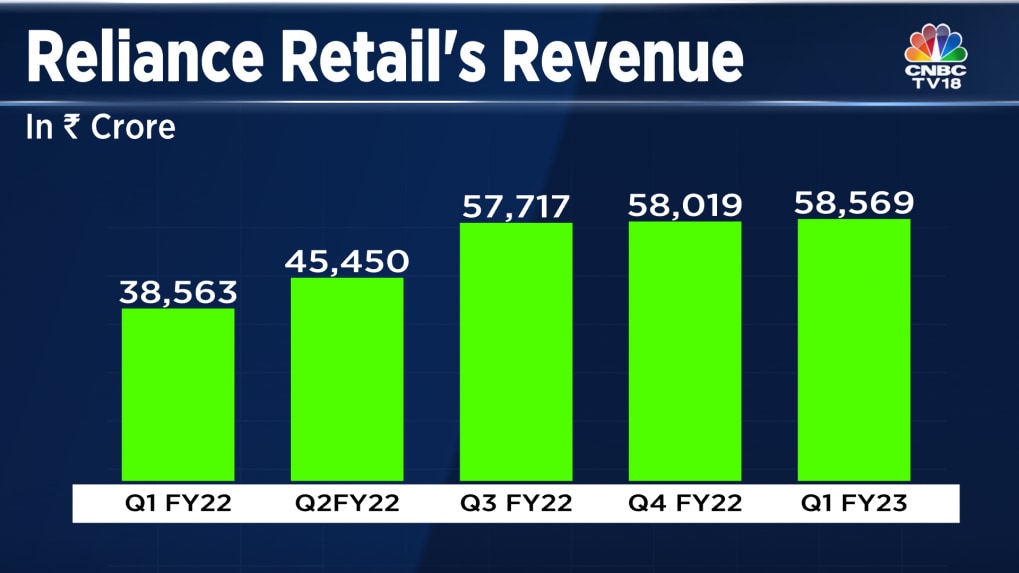FTC Challenges Court Ruling On Microsoft-Activision Merger

Table of Contents
The FTC's Arguments Against the Merger
The FTC's opposition to the Microsoft-Activision merger rests on two primary pillars: concerns about competition within the gaming market and the potential negative impact on independent game developers.
Concerns about Competition in the Gaming Market
The FTC's central argument centers on the potential for reduced competition, particularly concerning Call of Duty, Activision's flagship franchise. They argue that Microsoft's acquisition of Activision Blizzard, and thus Call of Duty, would give Microsoft an unfair advantage, leading to several negative consequences:
- Loss of Innovation: Reduced competition could stifle innovation as Microsoft would have less incentive to develop competitive games.
- Higher Prices for Gamers: A lack of competition could result in higher prices for games and related services.
- Limited Choices for Consumers: Gamers could face fewer choices in the gaming market, leading to a less diverse and dynamic ecosystem.
The FTC has backed its claims with extensive data and market analysis, highlighting Call of Duty's dominant position and the potential for anti-competitive practices by Microsoft. Keywords like antitrust, competition, gaming market, Call of Duty, and market dominance are central to their argument.
The Impact on Game Developers
The FTC also expresses significant concern about the merger's potential to harm independent game developers. They argue that Microsoft's increased market share and ownership of key studios could create an uneven playing field, leading to:
- Stifled Innovation: Independent developers might struggle to compete against the resources and market power of a Microsoft-owned Activision Blizzard.
- Unfair Advantage for Microsoft-Owned Studios: Microsoft could prioritize its own studios, potentially disadvantaging independent developers vying for resources and distribution deals.
The FTC points to specific examples to bolster its claims, emphasizing the importance of fair competition and protecting the vibrancy of the independent game development landscape. Keywords such as independent developers, game studios, market share, and fair competition are vital in understanding this facet of their argument.
The Court's Ruling and its Rationale
Despite the FTC's objections, the court ultimately ruled in favor of the merger, approving the acquisition of Activision Blizzard by Microsoft.
Summary of the Court's Decision
The court's decision rested on their assessment of the evidence presented, ultimately finding that the FTC had not adequately demonstrated that the merger would substantially lessen competition. The court considered arguments related to Call of Duty's market share and the potential for anti-competitive behavior, but ultimately concluded that these concerns did not outweigh the potential benefits of the merger. Keywords such as court ruling, antitrust law, legal precedent, and merger approval are key to understanding this verdict.
Key Legal Precedents Cited
The court's ruling relied on established antitrust law and several key legal precedents, including cases that focused on the interpretation of market dominance and the appropriate level of regulatory intervention in mergers and acquisitions. These precedents helped shape their understanding of the applicable legal arguments and formed the basis of their decision. The court's consideration of these past cases, involving elements like judicial review and case law, provided a framework for evaluating the specifics of the Microsoft-Activision merger.
The FTC's Next Steps and Potential Outcomes
The FTC's challenge is far from over. They have several options available to them, with potential ramifications stretching far beyond the gaming world.
Appeal Process and Potential Challenges
The FTC can appeal the court’s decision to a higher court, initiating a potentially lengthy and complex legal process. Success is far from guaranteed, as overturning a lower court's ruling requires a compelling case based on a misapplication of law or a misinterpretation of facts. Keywords such as appeal process, legal challenges, higher courts, and judicial review define this critical phase.
Impact on Future Mergers and Acquisitions in the Tech Industry
This case sets a significant precedent for future mergers and acquisitions in the tech industry. The outcome will influence how regulatory bodies approach similar deals and may lead to:
- Increased Regulatory Scrutiny: Future mergers and acquisitions in the tech sector could face increased scrutiny from regulatory bodies like the FTC and others globally.
- Changes in Antitrust Enforcement: The ruling, and any subsequent appeals, could lead to shifts in antitrust regulation and regulatory enforcement practices.
The consequences will extend beyond gaming, affecting how tech mergers are evaluated and the overall landscape of antitrust regulation in the technology sector.
Conclusion: FTC Challenges Court Ruling on Microsoft-Activision Merger – What's Next?
The FTC's challenge to the court's approval of the Microsoft-Activision merger represents a pivotal moment in the gaming industry and antitrust law. While the court initially favored the merger, the FTC's arguments highlight significant concerns about competition and the potential negative effects on consumers and independent developers. The appeal process and its outcome will not only determine the fate of the Microsoft-Activision merger but will significantly influence the regulatory landscape for future tech mergers and acquisitions. Stay informed about further developments in this landmark case by checking back for updates or following reputable legal and gaming news sources. The repercussions of this FTC Challenges Court Ruling on Microsoft-Activision Merger are likely to resonate throughout the industry for years to come.

Featured Posts
-
 Ambanis Reliance Earnings A Boost For Indias Large Cap Stocks
Apr 29, 2025
Ambanis Reliance Earnings A Boost For Indias Large Cap Stocks
Apr 29, 2025 -
 Understanding Russias Military Strategy And Its Impact On Europe
Apr 29, 2025
Understanding Russias Military Strategy And Its Impact On Europe
Apr 29, 2025 -
 Wildfire Betting Exploring The Ethics And Legality Of Wagering On The Los Angeles Fires
Apr 29, 2025
Wildfire Betting Exploring The Ethics And Legality Of Wagering On The Los Angeles Fires
Apr 29, 2025 -
 Stock Market Valuation Concerns Bof A Offers A Contrarian View
Apr 29, 2025
Stock Market Valuation Concerns Bof A Offers A Contrarian View
Apr 29, 2025 -
 Anthony Edwards And Ayesha Howard Custody Battle Concludes
Apr 29, 2025
Anthony Edwards And Ayesha Howard Custody Battle Concludes
Apr 29, 2025
Latest Posts
-
 Ryan Reynolds Celebrates Wrexham Afcs Historic Promotion
Apr 29, 2025
Ryan Reynolds Celebrates Wrexham Afcs Historic Promotion
Apr 29, 2025 -
 Alan Cumming A Look Back At His Favorite Childhood Activity In Scotland
Apr 29, 2025
Alan Cumming A Look Back At His Favorite Childhood Activity In Scotland
Apr 29, 2025 -
 Serious Injuries Reported After Car Plows Into Crowd At Vancouver Festival
Apr 29, 2025
Serious Injuries Reported After Car Plows Into Crowd At Vancouver Festival
Apr 29, 2025 -
 Scottish Childhood Alan Cummings Favorite Pastime
Apr 29, 2025
Scottish Childhood Alan Cummings Favorite Pastime
Apr 29, 2025 -
 Actor Alan Cumming Recalls Favorite Childhood Activity In Scotland
Apr 29, 2025
Actor Alan Cumming Recalls Favorite Childhood Activity In Scotland
Apr 29, 2025
